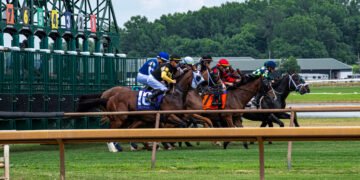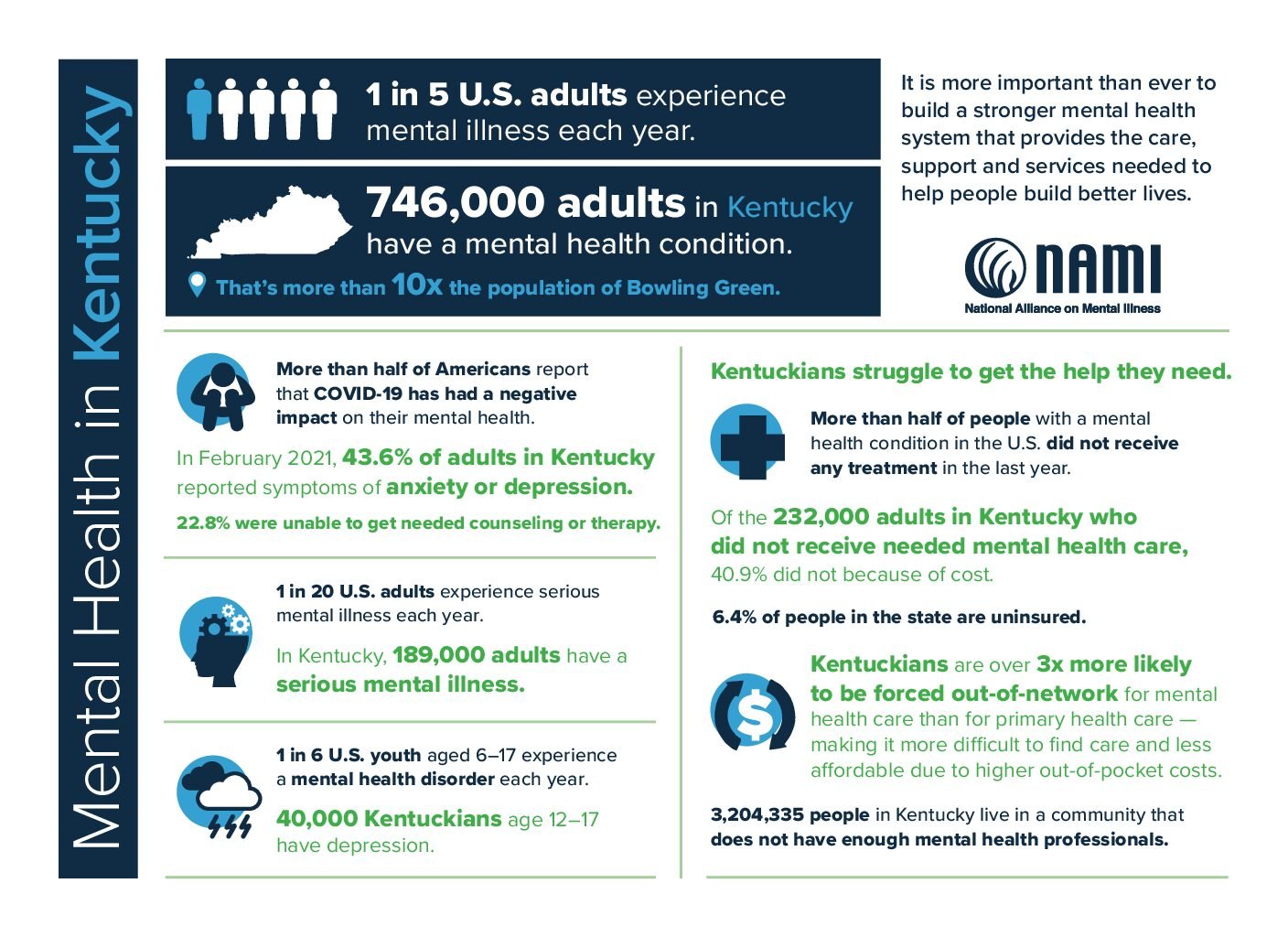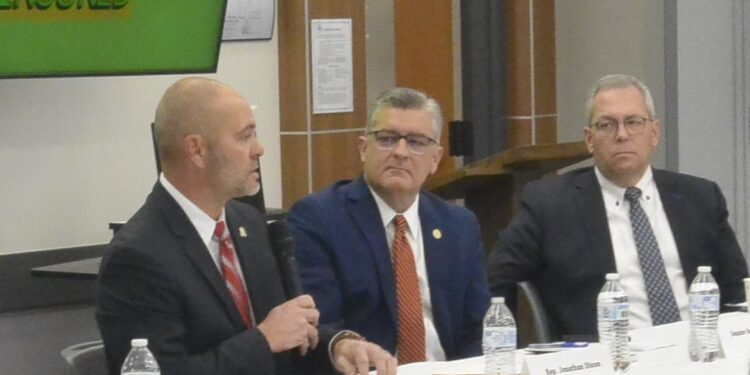Local state legislators met with the public Monday morning at the Henderson Chamber of Commerce’s legislative preview breakfast to discuss their priorities during the current General Assembly session in Frankfort. State Sen. Robby Mills and state Rep. Jonathan each took turns talking about tax reform, teacher funding, crime and the pension system.
They also spoke about pushes more specific to Henderson, such as the proposed conference center at Audubon State Park and issues pertaining to I-69.
In the budget laid out by House Republican leadership in mid-January, $8.5 million is earmarked for work on a new conference center at Audubon. The funding would be used to tear down the old bathhouse and replace it with a conference center over a two-year span. The project, as reported in the Hendersonian, currently carries a $15.2 million price tag and would require both local governments—the city and the county—to provide a match.
Both legislators spoke optimistically that the funding would remain in place as the budget passes through the Senate and then committee before it can become law with a final approval of both chambers.
Mills also mentioned the Watson Lane reconstruction that is supposed to start this summer as another priority. And he outlined a push to get $60 million in funding to build a new police training center in Madisonville, which he said would help get officers in western Kentucky trained more quickly and alleviate the constant backlog of those waiting to be trained at the state’s only law enforcement training center in Richmond.
Of I-69, and more specifically what will occur after the interstate opens, Dixon said that both he and Mills have had discussions about keeping both U.S. 41 bridges open, a measure not currently in plans. Most recent plans are for the southbound bridge to be closed once I-69 is open.
Dixon said one question is whether keeping the southbound bridge open is financially possible. And another is where will the funding come for costs to keep it open.
From the crowd, Henderson County Judge-Executive Brad Schneider pointed out that closing or keeping open the southbound bridge is also a decision for Indiana governmental bodies and not one Kentucky officials would be able to make alone.
Mills said that I-69 plans are designed in a manner that brings people back to the 41-strip and the businesses that are located there.
Dixon said working on tax reform has been an issue close to him since he began his time in the House. A continued push for tax reform is a measure to ensure “money is put back into the pockets of working folks,” Dixon said.
The state legislature passed HB 8 in 2022 that allowed for a half-percentage point reduction in income tax rate per year so long as certain conditions were met in the state budget each year. In 2023, the income tax rate was reduced from 5% to 4.5%. This year, the rate was not reduced because one of the conditions was not met.
Dixon said that he wants to continue working on tax reform legislation and hopes that ten years from now there will be no income tax in the state.
“The ultimate goal is to get us to zero,” he said.
Mills sees tax reform as a key to growth, and Kentucky needs to bring its income tax rate to zero to be competitive with surrounding states that have already done so.
“If we don’t get to zero in … income tax, we’re going to get left behind,” he said, adding he hopes a zero tax rate would encourage people to move to northwest Kentucky.
Both said that funding teachers was important, but offered little in way of specific plans. Dixon said making sure teachers have what they need to do their job and funding for vocational programs is a push, while Mills said that the legislature funding $500 million each year to right the pension system is “robbing” from the education of current students.
Finally, Dixon said HB 5, the “Safer Kentucky Act,” will in part create a “three strikes and you’re out” law in which three felonies will put an offender in jail for life without probation or parole. He said the felonies included are “vicious offenses”—“things we consider you shouldn’t be back on the street for.”
The “massive bill” also includes new provisions for charging a person who deals drugs that lead to a person’s death, for allowing store owners to stop thieves whom they’ve caught stealing, for requiring parents to attend a child’s court proceedings, and for a carjacking statute, Dixon said.
The bill also would establish street camping as a criminal offense, according to the Kentucky General Assembly website. Local attorney Don Thompson questioned whether the bill would make being homeless a crime.
Dixon responded that it puts in place a citation process that encourages homeless to seek help. A second offense is a Class D misdemeanor with a $250 fine and 90 days in jail.
Thompson disagreed that the proposed citations would help but instead create a “revolving door” in which a homeless person is released from jail, and with nowhere to go, returns to the street only to be arrested again.






















